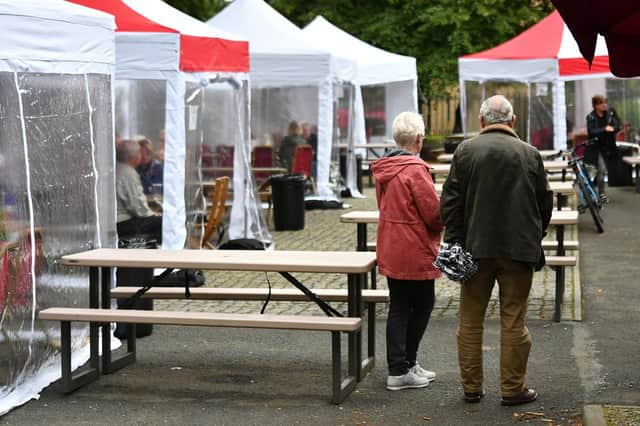Covid lockdown: Hospitality sector needs help not government bureaucracy at its worst as it begins to re-open – Scotsman comment


She needn't have worried. For although weddings, birthday parties and other events that her small firm in Stromness catered for were cancelled, the people of Orkney rallied round and business “took off”. “I definitely feel like there has been a huge wave of support prompted by the pandemic bringing us all together,” she said.
Other firms had a similar experience. Swedish chef, Karin Jonsson, of the Orkney Sourdough Co., spoke of “the love and support” shown by local people that had “kept me going”. After lockdown, people ordering bread to eat at home increased dramatically and she found herself busier than ever.
Advertisement
Hide AdAdvertisement
Hide AdHere was a community that recognised the threat faced by local businesses and rallied round to help. The size of the community may well have helped people to see companies not as faceless corporate entities but real people whose livelihoods were potentially at stake.
Scotland is a small country but its cities are still big enough for distance to create barriers to that kind of community spirit. However, as demonstrated on Orkney, adopting an attitude of “what can I do to help?” really does make a difference, so finding ways to foster such sentiment is important.
And it should be obvious that this attitude should be adopted not just by individuals, but also companies and, crucially, government, both local and national.
Ministers have been forced to introduce rules and regulations at short notice as the Covid infection rate has fluctuated over the last year. Understandably, these have sometimes not been as clear as they have needed to be – real life is almost always more complicated than any civil service plan can encompass.
A case in point is the call by hospitality sector leaders for greater clarity over beer gardens as they prepare to re-open to serve customers outdoors. Many pubs and restaurants have created covered areas to provide shelter from the weather, but there are fears that some structures may contravene Scottish government regulations that define “indoors”.
Paul Togneri, of the Scottish Beer and Pub Association, called for a “common sense” approach by the authorities, and we very much hope that his plea is heard.
In normal times, companies that break the rules should expect to be penalised. However, these are far from normal times and the vast majority of businesses are doing their best to abide by restrictions that have been formulated and implemented far more quickly than usual.
So if a pub is breaking the rules on a technicality that does not compromise people’s safety, the attitude of the authorities should be closer to that of the people of Orkney – “what can we do to help?” – rather than “we’re going to have to shut you down”. Providing advice on how to bring structures into compliance and working with companies in a collaborative way should be the first response.
Advertisement
Hide AdAdvertisement
Hide AdScotland has already lost too many jobs and businesses to see others put at risk by implacable bureaucracy at its worst.
A message from the Editor:
Thank you for reading this article. We're more reliant on your support than ever as the shift in consumer habits brought about by coronavirus impacts our advertisers.
If you haven't already, please consider supporting our trusted, fact-checked journalism by taking out a digital subscription.
Comments
Want to join the conversation? Please or to comment on this article.